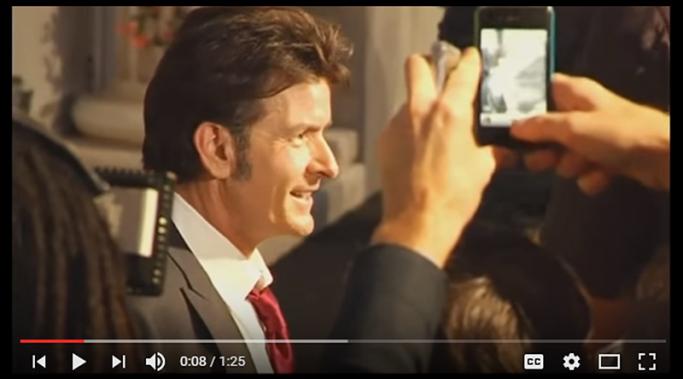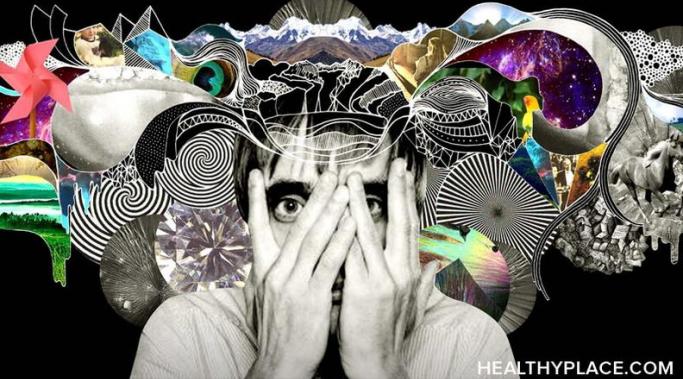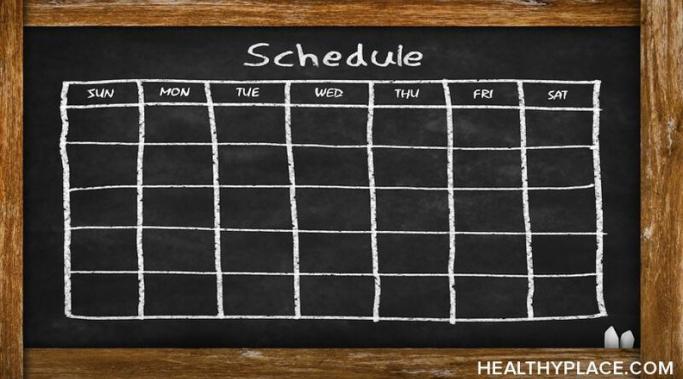Last week I waded into Charlie Sheen territory. It was, perhaps, a touch more eel-infested than I had anticipated but life is surprising like that. Yes, I said Sheen is going through a manic episode as part of a mental illness. (And no, I still haven’t become a doctor.) Let’s say for the moment, I’m right.
Since I made my case for compassion for Sheen and mental illness, over scorn and ridicule, people have made the case back that it’s the media’s fault Sheen’s behavior is this out of control.
I don’t think so.
Hypomania
I know this seems like an odd question, but I was considering it this morning (in my shower). It is a common problem for people with a mental illness. I have a tendency to avoid showering (really) and I know of others with a mental illness have gone weeks without showering.
So, if all we’re talking about is standing in some warm water, why don’t we want to shower?
Charlie Sheen's recent remarks may seen funny to some, but when I look at his statements and actions, to me they scream mania, a symptom of bipolar disorder.
I think I’m pretty great as a general rule. I’m kind, caring, intelligent, creative, talented, sexy, witty and a bunch of other stuff. Not particularly greater than anyone else, just the normal amount of great.
Except for when I’m not, of course. Except for when I'm darkness sliced from evil. Except for when my slithering existence requires extinguishing. Then, I’m not so great.
As I mentioned last time, many doctors feel that antidepressants actually make bipolar disorder worse. Some specialists, in fact, will routinely take people with bipolar disorder off of antidepressants when the bipolar is doing well. Like I said, it’s a matter of perspective.
And I get asked all the time about getting off of antidepressants and other medication. So, exactly how should you get off an antidepressant and what should you worry about when doing so?
While many people with bipolar disorder have and continue to be treated with antidepressants along with many other medications, there is a controversy in the medical community as to whether this is an appropriate approach. In bipolar disorder there is some risk of antidepressants inducing mania or perhaps worsening rapid-cycling.
But is this true? What evidence is there that antidepressants work in bipolar disorder? What evidence is there that they will make bipolar disorder worse? What do you do if you can’t take an antidepressant?
Epileptics often get what is known as an aura before they have a seizure. An aura is a sensation like hearing voices or seeing colored lights or experiencing numbness. An aura might be present a few seconds or a few minutes before the seizure depending on the person. It’s an early warning sign of a brain misfire. Similarly, I experience signs, an aura if you will, of upcoming hypomanias.
There are exactly two settings on my dial: blow your mind and blow your brains out. I’m bipolar. We’re like that.
Not surprisingly, the sex mostly happens on the blow your mind setting.
Bipolar disorder, by its very nature, is not routine. People become manic unexpectedly and people get depressed unexpectedly. And during depression or mania, people become even more erratic in all areas of their lives.
So if bipolar disorder exists outside of a routine, what would happen if routine were applied to bipolar disorder?
The hypomanic mind isn’t like a single life happening all at once, it’s like every life happening all at once in a tiny, tinny, echoing room. Hypomania is like having ball-bearings bouncing around inside my skull faster and harder and fast and hard and faster and harder. Hitting each other, making divots on the inside of my skull, becoming interior decorators. Fragmented, distracted thoughts. Sentence fragments. Problem grammar. No capital letters. No punctuation.



